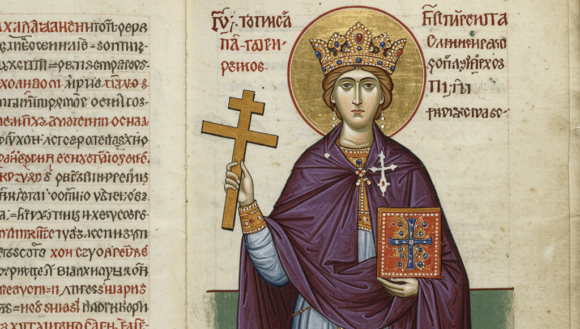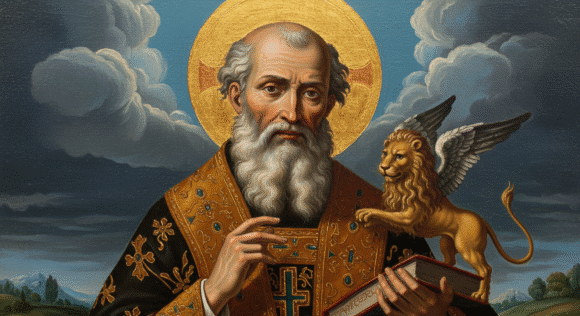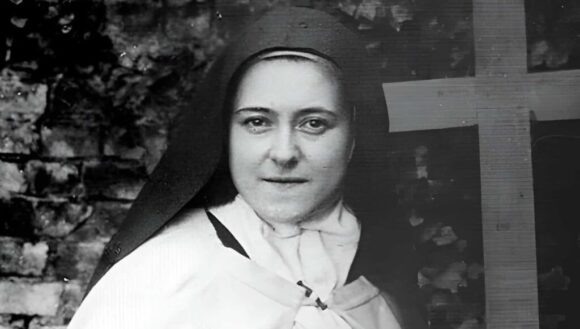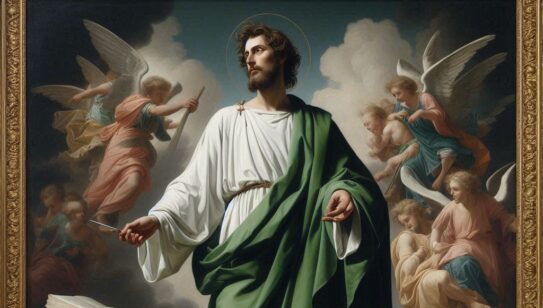Saint Alice of Schaerbeek, also known as Saint Aleydis, Adelaide, Aleide, Alice the Leper, Alice of Schaerbeek, Alix, Adelheid, Aliz de Schaerbeck, or Aleydis of Scharembeke. She is born around 1220 in the Duchy of Brabant, is a revered figure in the history of the Catholic Church. Her life symbolizes resilience in the face of overwhelming challenges and a profound commitment to faith.
Despite her suffering from leprosy and eventual paralysis and blindness, she became a beacon of spiritual strength for many. This article delves into her story, teachings, and the enduring legacy she left in the world of Christianity.
What is the story of Saint Alice of Schaerbeek?
Saint Alice of Schaerbeek’s life is a testament to the strength of faith within adversity. Born into a noble family, she was sent to La Cambre Abbey for education. At the age of 20, Alice contracted leprosy, which led to her eventual paralysis and blindness. Her suffering did not lead her away from God; instead, it deepened her faith.
Despite her physical limitations, Alice remained devoted to the Holy Eucharist, believing in the real presence of Christ within the consecrated bread. This belief anchored her spirituality and provided her with profound comfort during her trials.
Her commitment to her faith and her community is remembered through her canonization in 1907, where she was recognized as a Cistercian laysister and patron saint of the blind and paralyzed. Her story continues to inspire many today, highlighting the human spirit’s resilience.
How did Saint Alice of Schaerbeek become a patron saint?
The journey of Saint Alice towards sainthood is rooted in her exemplary life of faith and service. Following her illness, she dedicated her life to prayer and the care of others, particularly the sick and marginalized. Her deep spirituality and charitable works caught the attention of her contemporaries.
Many believed her to possess miraculous abilities, particularly in healing, which further solidified her reputation within the community. Her association with miraculous events contributed significantly to her canonization.
In recognition of her life and faith, Alice was canonized and acknowledged as the patron saint of the blind and paralyzed, reflecting her own experiences of suffering. This designation serves as a source of hope for many who face similar challenges today.
Why is the Eucharist significant in the life of Saint Alice of Schaerbeek?
The Eucharist played a pivotal role in the spiritual life of Saint Alice of Schaerbeek. Her understanding and devotion to the Eucharist were profound, as she viewed it as a source of strength and nourishment. This sacramental bond with Christ was central to her faith.
Alice believed in the Real Presence of Christ in the Eucharist, a belief that is foundational to Catholic theology. This conviction provided her with solace amidst her suffering and served as a testament to her unwavering faith.
The significance of the Eucharist in her life also reflects broader themes within Catholic teachings, emphasizing the profound connection between suffering and divine grace. Her commitment to the Eucharist inspired others to explore their own faith more deeply.
What are the key teachings of Saint Alice of Schaerbeek?
Saint Alice of Schaerbeek imparted valuable teachings through her life and examples of faith. One of her primary messages was the importance of surrendering oneself to God, especially in times of suffering. Her life exemplified the strength found in vulnerability.
She also emphasized the value of community and caring for one another, particularly those who are marginalized. Her commitment to serving others demonstrated a profound understanding of Christian charity, which remains relevant today.
Additionally, Alice’s teachings reflect the principles of Cistercian spirituality, emphasizing simplicity, humility, and a deep reliance on prayer. These teachings continue to resonate with those seeking a deeper spiritual life.
- Surrender to God in times of distress
- The importance of community and charity
- Emphasis on simplicity and humility
- Deep reliance on prayer and the Eucharist
How did Saint Alice of Schaerbeek influence the Beguine movement?
The Beguine movement, which emerged in the 13th century, was significantly influenced by figures like Saint Alice of Schaerbeek. This movement provided a means for women to live a devout life without taking formal religious vows. Alice’s life intersected with this movement as she became actively involved in its charitable works.
Her commitment to prayer and community service resonated with the Beguines’ core values, which emphasized personal spirituality and social responsibility. Through her actions, Alice inspired many women to pursue a path of faith and service.
The legacy of Alice continues to be a source of inspiration for the Beguine movement, as it highlights the role of women in medieval spirituality. Her example encourages modern followers to embrace a life of service and devotion.
What is the legacy of Saint Alice of Schaerbeek in modern Christianity?
Saint Alice of Schaerbeek’s legacy is profound within modern Christianity, particularly in how it relates to themes of resilience, faith, and service. Her story encourages believers to find strength in their faith during difficulties. She serves as a model for those who struggle with physical limitations.
Her influence extends beyond the Catholic Church, as her teachings and example resonate with many Christian denominations that value the significance of suffering and the strength derived from faith.
Today, Saint Alice is celebrated not only as a saint but also as a symbol of hope for many individuals facing challenges. Her life encourages a deeper appreciation of the Eucharist and the call to serve others, reflecting core Christian values.
Related questions about the life and legacy of Saint Alice of Schaerbeek
Is Alicia a Catholic saint?
Alice of Schaerbeek is indeed recognized as a Catholic saint. Canonized in 1907, she is celebrated for her deep faith and charitable works. Her life serves as an inspiration for many Catholics and is a testament to the strength of faith in adversity.
Who is the patron saint of paralyzed people?
Saint Alice of Schaerbeek is honored as the patron saint of the blind and paralyzed. Her own experiences of suffering from leprosy, leading to paralysis and blindness, make her a significant figure for those facing similar challenges. Her intercession is sought by many who seek healing and comfort.
Saint Alice’s dedication to helping the marginalized and her profound faith continue to inspire individuals today. Her legacy encourages believers to find hope in their struggles and to support one another in their journeys of faith.







